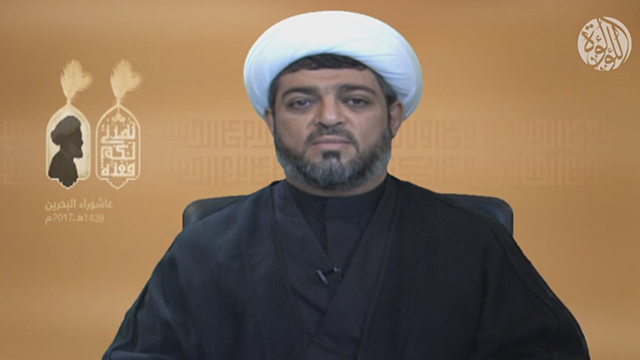That struggle includes an intensifying campaign by Bahraini security forces aimed at forcibly removing all displays associated with Ashura, which honors the martyrdom of the grandson of Islam’s Prophet Mohammad, Imam Hussein.
Delivering Bahrain’s annual Ashura address, Sheikh Al Daihi described Manama’s decision to place the kingdom’s highest religious authority Sheikh Isa Qassim under house, as one of the defining features of the country’s deepening turmoil.
“We needed three hundred thousand demonstrators to take to the streets in order to prove to the world that there is a real crisis in Bahrain, but today we do not need these large numbers on the streets because the regime’s behavior proves to the world that there is a real crisis in the country,” the cleric said. “Placing Bahrain’s most prominent religious and national leader under house arrest proves this.”
Touching on the recent attack on Diraz, the senior Al Wefaq official compared the sacrifices of Imam Hussein’s followers to those made by Sheikh Qassim’s supporters – five of whom were killed during the bloody raid in May.
“Their day was like the day of Hussein (PBUH), and just like Hussein’s supporters they defended him, and refused to abandon him and made the most precious sacrifices,” Al Daihi added. “The Bahraini regime suffered a psychological defeat after witnessing the sacrifices made by …[these] people.”
Meanwhile, in an attempt to address Manama’s increasingly public push to normalize ties with Tel Aviv, Sheikh Al Daihi vowed that “the people of Bahrain will never abandon Palestine.”
“In Bahrain, we will remain loyal to the Palestinian cause, and we will not accept the projects of betrayal to this cause, no matter how many times the Bahraini regime shook hands with the Zionists in search of an alleged peace, and how many meetings were held with the members of the Israeli lobby, and how many friendly messages were sent,” he said.
The opposition figure also blamed the regime in Manama for obstructing a political solution, which has given birth to a “new crisis” in the Persian Gulf state.
Nevertheless, Al Daihi reaffirmed the opposition’s commitment to dialogue and its tireless pursuit of “stability, progress and development”.
“We have a national political project that aims to build the future of Bahrain for all its people, Shiites and Sunnis, in order to promote social justice, equal citizenship and full political partnership, and establish a comprehensive democratic process that fulfills the aspirations of our people.”
/106

